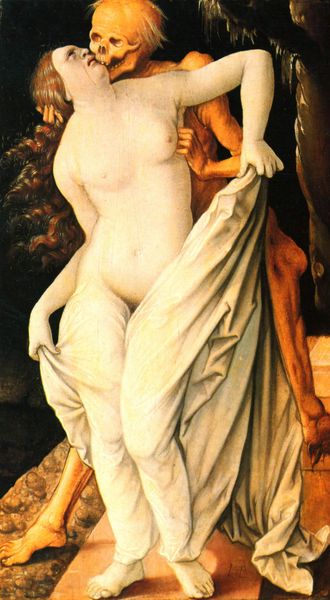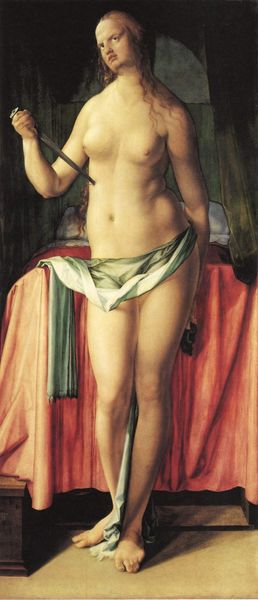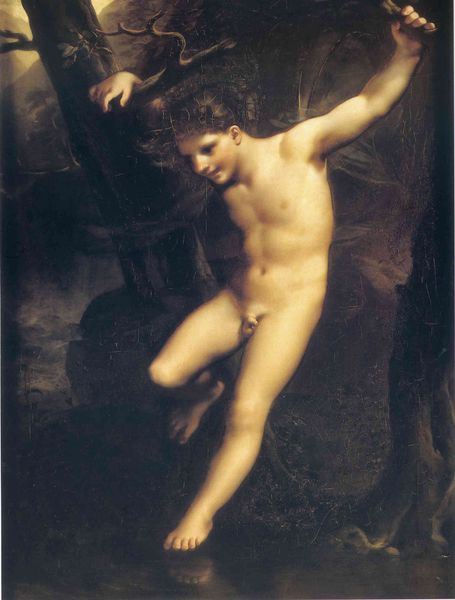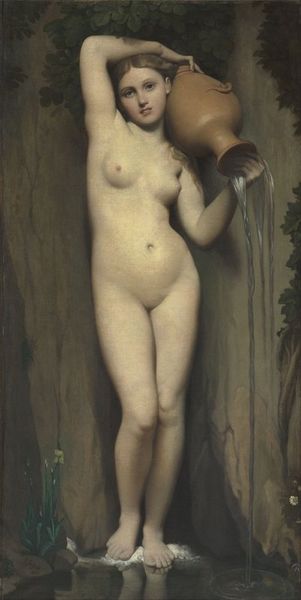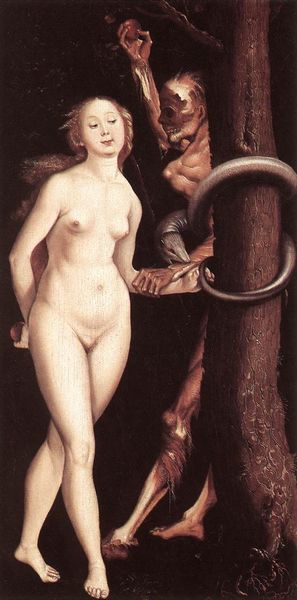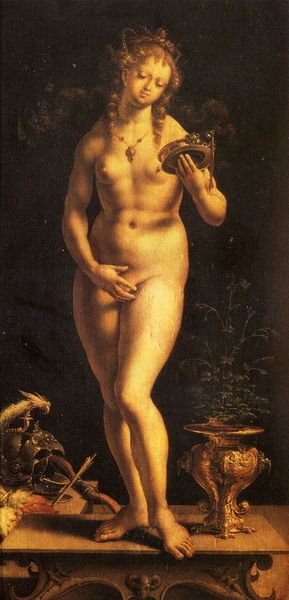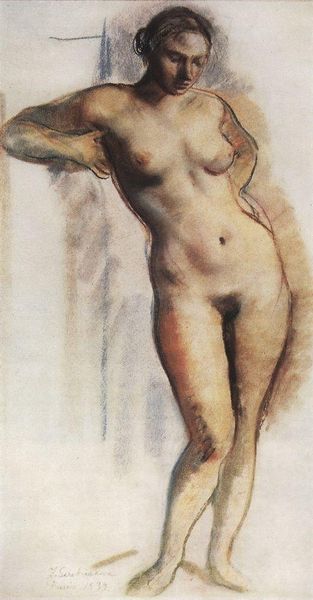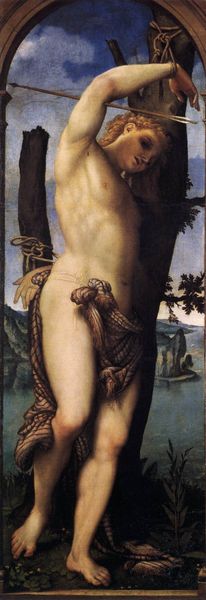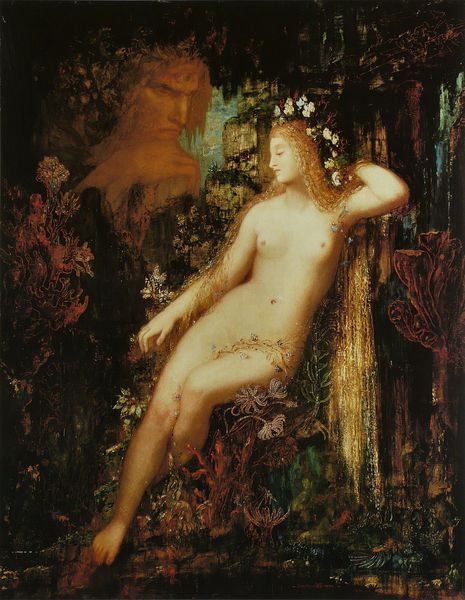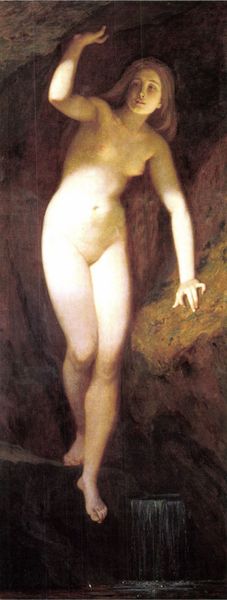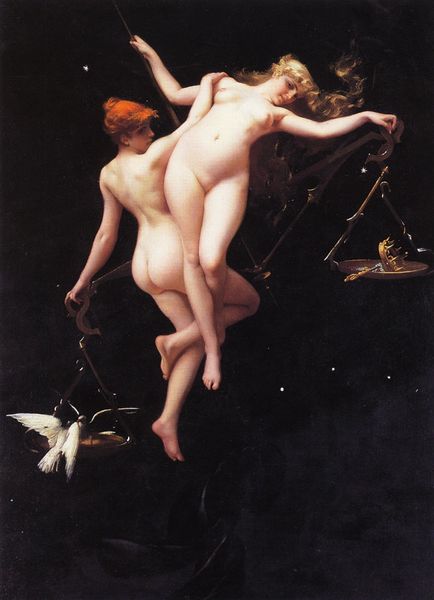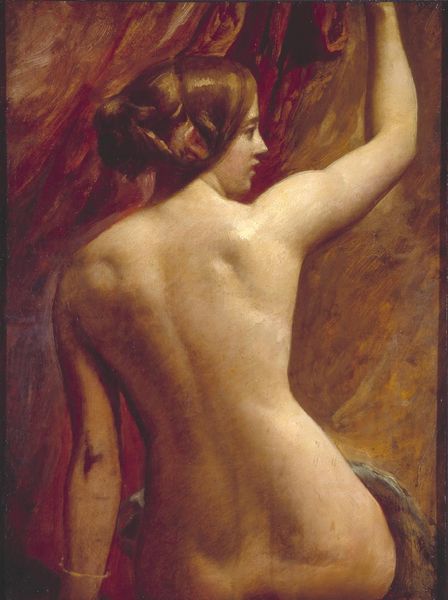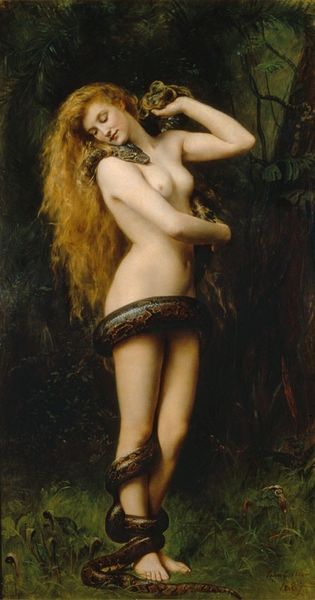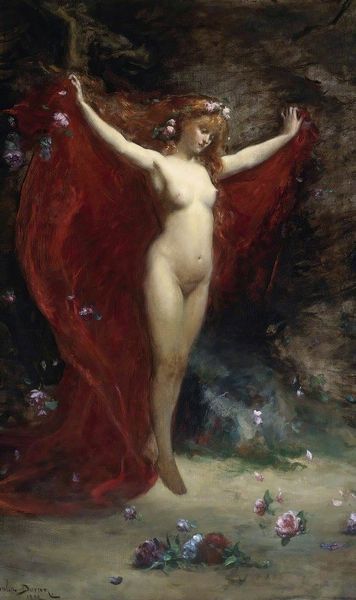
oil-paint, fresco
#
portrait
#
allegories
#
allegory
#
symbol
#
oil-paint
#
figuration
#
fresco
#
11_renaissance
#
female-nude
#
animal portrait
#
human
#
genre-painting
#
history-painting
#
northern-renaissance
#
nude
Dimensions: 82.9 x 36.1 cm
Copyright: Public domain
Curator: Before us we have "Prudence," a 1529 oil-on-wood painting by Hans Baldung, held at the Alte Pinakothek in Munich. My first impression? There is a startling mix of strength and vulnerability to the depiction of the feminine figure. It evokes in me the powerful introspection we do when making a crucial decision. Editor: It’s fascinating how Baldung captures her, literally caught between worlds! Note her placement: stepping on a serpent at the edge of some wild place, whilst she contemplates a looking glass as deer emerge out of the distant background, and hints of civilization in the opposite distance. This symbolizes Prudence reigning over instincts but with the need of deep thinking. Curator: Exactly! The serpent she treads upon is a very direct, potent symbol of conquered evil, the animalistic urges, whilst holding up a mirror. Isn't it a clever rendering of knowing oneself and the ramifications of our choices? Also, note how gentle she's posed even though her heel is firmly planted! I have a soft spot for this gentle but dominant take on strength. Editor: Absolutely. It speaks volumes about the period’s complex relationship with virtue. What are those ramifications that Baldung had in mind? I note that it is not simply about suppressing base desires—but more about a continuous conscious assessment. After all, the mirror isn't merely for vanity but self-knowledge in antiquity, like the Greek “know thyself.” Curator: Right? It isn't just the presence of mind, but understanding motivations; what urges lead me, or you, or humanity into this dance with morality! I believe it's one of the reasons why I admire Prudence so, by its ability to engage that discussion visually. Editor: What stays with me, I suppose, is Baldung's delicate balance. His ‘Prudence’ transcends her era, as he offers something eternal by which humankind wrestles. Curator: Yes, absolutely - Baldung challenges us to consider what's reflected in our own mirrors. It's an experience with this one, this deep dialogue and internal examination. Editor: It becomes less about her as 'Prudence', but about the choices facing all. Profound and a constant self assessment!
Comments
No comments
Be the first to comment and join the conversation on the ultimate creative platform.
